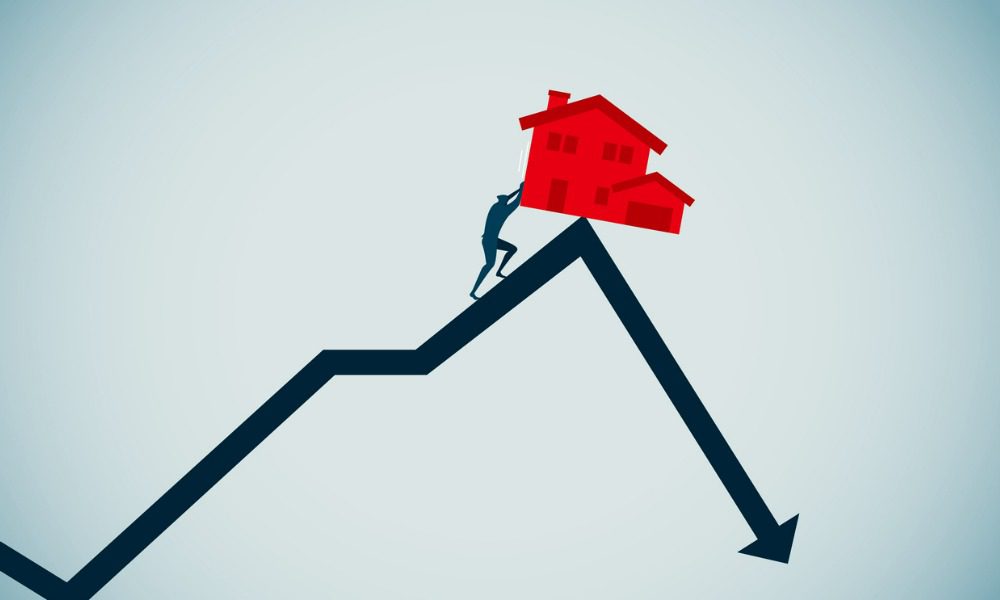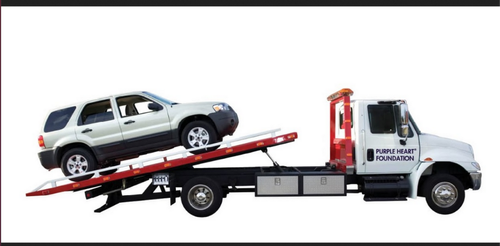The U.S. housing market is finally slowing down after a record-breaking run, which saw mortgage rates fall to historic lows and home prices rise to new heights. Housing analysts and economists say that while price increases and demand are cooling, any correction will likely be modest. Nobody expects price drops to be as severe as those experienced in the Great Recession.

Rob Dietz is the chief economist of the National Association of Home Builders. He summarizes the consensus among housing experts as follows: “We think this will be a moderate decline,” he states.
The real estate party went on for longer than anyone could have guessed. According to the National Association of Realtors, the median price of real estate in spring 2022 was $400,000 for the first ever. According to NAR data, prices have increased by a staggering 39 percent since March 2020’s coronavirus pandemic.
Bidding wars are now largely over, inventories have fallen, and there is no feeling of frothiness. Lawrence Yun, chief economist at NAR, says that the market is clearly changing.
Will the housing market crash?
In 2005-2007, the U.S. housing markets looked so frosty that it was almost impossible to believe. With disastrous results, home values plummeted. The global economy suffered its worst downturn since the Great Depression, when the real-estate bubble burst.
The threat to the housing boom from rising mortgage rates as well as a potential recession are prompting homeowners and buyers to ask the same question: Is it so hot that it is about to crash?
Although prices may fall, housing economists believe that the decline will not be as severe than the Great Recession. There is a clear difference between today and 15 years ago. The homeowners’ personal financial balances are stronger than ever. A typical homeowner with a mortgage has excellent credit and equity. They also have a fixed-rate mortgage at a rate below 5 percent. There is no foreclosure crisis.
Builders are also well-aware of the Great Recession and have been cautious with their construction pace. This has led to a shortage of homes available for sale.
Yun states that “we simply don’t possess enough inventory.” Yun asks, “Will certain markets experience a decline in prices? He says “Yes.” “But, with no supply, a repeat of a 30% price drop is highly unlikely.”
Statistics on the housing market
- According to ATTOM Data Solutions , 34,501 U.S. properties had filed for foreclosure — either default notices, scheduled auctions, or bank repossessions — by August 2022.
- According to ATTOM, Illinois had the highest August foreclosure rate. There was one foreclosure filing per 1,926 housing units. Delaware was next with one foreclosure filing for every 1,926 housing units.
- In August 2022, 3,938 U.S. property were repossessed by lenders through complete foreclosures. These are known as “realty owned” or REO. According to ATTOM, Illinois had 493 REOs and New York 337.
- According to the National Association of Realtors, home sales dropped 19.9 percent between August 2021 and August 2022. In August 2022, the median home price was $389,000.
- According to NAR, the rate of home appreciation was 7.7 percent between August 2021 and August 2022.
Prices for existing homes
Housing economists have predicted that the Housing market crash will eventually slow down as home values fall due to their success. The home prices have risen faster than the incomes. This has created an affordability squeeze and the mortgage rates have doubled in 2021.
Experts predict that home prices will fall
Dietz predicts that most markets will experience price drops in the single digits. A decline in home prices of 8 to 9 per cent would cause economic pain. This correction will not be as severe as the Great Recession’s utter collapse in property prices, which saw some markets experience a 50% drop in their values.
Rick Sharga, executive VP for market intelligence at ATTOM Data Solutions expects a decline of 5%. He says, “It’s almost certain that we’ll see home prices fall.”
Yun believes that high-priced areas like California are most susceptible to a decline in home prices. On the other hand, the Midwest is not likely to experience a drop in home prices. He expects that national prices will remain flat next year.
Five reasons why the housing market isn’t about to crash
Five compelling reasons are cited by housing economists to support the belief that there is no imminent crash.
- Inventory levels are still low. According to the National Association of Realtors, there was a 3.2 month supply of homes available for sale in August. This figure was even lower in February with a mere 2.0-month supply. This lack of inventory is why buyers are forced to raise prices. It also shows that there won’t be a price crash anytime soon due to the supply-and demand equation.
- Builders couldn’t build fast enough to meet demand. Homebuilders pulled back way after the last crash and never fully recovered to pre-2007 levels. They are unable to purchase land or get regulatory approvals fast enough to meet demand. They are still building as much as possible, but it is unlikely that they will repeat the 15-year-old overbuilding. “The main reason for the price rise is increased demand and a shortage of supply,” states Greg McBride CFA, chief financial analyst at Bestevercre. As more homes are brought to the market by builders, potential buyers will be priced out of the market and supply and demand can return to balance. It will take time.
- Demographic trends are driving new buyers: There is strong demand for homes from many angles. Many Americans, who had homes before the pandemic, decided that larger places were needed. This was especially true with the rise in remote work. Millennials represent a large group, and are in their prime years of buying homes. The Hispanics is a growing, young demographic that wants to own a home.
- The lending standards are still strict. In 2007, “liar loan” was common. Borrowers didn’t have to prove their income. Lenders could offer mortgages to anyone regardless of credit history or downpayment size. Lenders today have strict standards for borrowers. Those who get a mortgage are overwhelmingly of excellent credit. According to the Federal Reserve Bank of New York, the average credit score of mortgage borrowers was 786 in the third and fourth quarters of 2019. McBride says that if lending standards are relaxed and we return to the wild, wild west times of 2004-2006, then this is a different animal. McBride says that if prices start to rise due to the artificial buying power provided by loose lending standards, then we should be concerned about a crash.
- There is little foreclosure activity: After the housing crash, there were millions of foreclosures, which depressed prices. This is not the case today. Many homeowners have a large equity cushion. During the height of the pandemic mortgage default notices were not filed by lenders, driving foreclosures down to record lows in 2020.
All this adds up to a consensus that home prices are exceedingly affordable. This boom should not end in bust.


